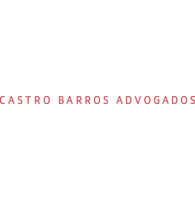
Brazil Teams 2019

| Oracle Brazil




Oracle Brazil
Marcio Silveira is the senior vice president, regional general counsel and regional compliance and ethics officer for oracle latin america division, managing a team of seven legal directors (direct report) and 13 lawyers (indirect report), covering major Latin American territories. The Brazil legal team is locally structured with one legal director, four lawyers and one legal intern. Alexandre Sarte is responsible for overseeing and managing legal support to all lines of business at Oracle Brazil and also advising executives on various regulatory, privacy, corporate governance, risk management, contracts, pre-litigation and other legal matters. Andre Dias, at Oracle since 2016 as a legal counsel, is responsible to provide legal support to a range of different lines of business, notably related to support services both for private and public sector customers, systems, logistics, marketing, alliances and channels. Bruno Lacaz, at Oracle since 2017 as a legal counsel, is responsible for legal matters related to license and cloud deals for public sector customers, data cloud; real estate and facilities, procurement and corporate matters. He is also an active member of Oracle Volunteers and leader of the Brazilian diversity and inclusion committee. Bruno Prata, at Oracle since 2018 as a legal counsel, provides legal support to several lines of business, being responsible for cloud services deals for private sector customers; and also consulting and hospitality. He is responsible for legal trainings and translation reviews. Mayra Cunha, at Oracle since 2018 as a legal counsel, is responsible for legal matters related to: licenses deals for private sector customers; licenses management services; open Source; Oracle University; Oracle Academy and several legal trainings. She is also active member of OWL (Oracle Women’s Leadership). Tayna Spadaro, at Oracle since 2019 as a legal intern, provides legal assistance to all lawyers in various legal matters.
The legal team has been involved in several multimillion-dollar complex negotiations, succeeding in closing cloud and license deals, for both private and public sector large customers. The legal team has also actively supported Oracle Brazil in relevant M&A transactions.
At Oracle legal we consider soft skills as important as any other technical skill. We consider emotional intelligence as one of the most important soft skills for an in-house lawyer, since you will have to handle both, others and your own emotions, in order to take the right decisions for the company. An in-house lawyer must know how to manage emotions to create a balanced and healthy environment while accessing complex legal matters.
A legal team must have a deep knowledge of the company’s business, seen as a business partner, and always facilitate business through legal advice. Also, the legal team must be open and accessible, always building a relationship of trust among the company’s executives and lines of business.
Oracle has a very strong and well established diversity and inclusion programme. We share a view that it is important to cultivate an environment that is inclusive to all employees. Respecting differences enriches our organisation and contributes to our success. The legal team has a key role as an ally of diversity and inclusion programmes; our local team actively participate as diversity champions, promoting events, enforcing and updating our policies, and encouraging employee engagement in communities with similar interests or experiences, all strategically aligned with Oracle’s business goals and our diversity and inclusion objectives.
There is no doubt that technology is changing the world around us. Information and people are traveling much faster, solar panel technology is affordable, education is being reinvented, and self-driving cars are becoming a reality. Embracing the accelerated pace of transformation seems to be the only option. From a business perspective, healthcare organisations are an excellent example of how technology is changing society. There were so many new developments that allowed people to increase their well-being, such as new medical tools that provided faster recovery, or new procedures that are less invasive. It is safe to say that innovation and technology have the potential to change our lives even more in the near future.
That being said, legal departments rarely are considered as a vector of transformation, and are seen as rigid and inflexible. However, the truth is that legal departments are essential and can contribute a lot to an organisation that is willing to change society. The mission of any legal department is to ensure that all possible risks are mitigated, while still allowing the company to do business in a practical and agile manner.
To effect change in society, any given organisation must follow all legal requirements, so it can keep providing value for its customers – improving the community. In a highly globalised world, legal departments become a crucial part of any organisation, since it has to guarantee that the organisation complies with all applicable legislation and safeguard its interests. Furthermore, any legal department has the duty to maintain and protect all of the company’s intellectual property, which has particular importance in a world where innovation and information have immeasurable value. No innovation would be profitable without the appropriate legal structure.
Considering the diverse world we currently live in, organisations cannot afford to be narrow-minded. This is not different for a legal department, focusing only on legal matters is not enough, a legal team must find creative and innovative solutions for new and complex issues that customers face every day.
Thus, although the legal department is not the first department that you think about when discussing technology and innovation, it certainly has its importance and relevance.